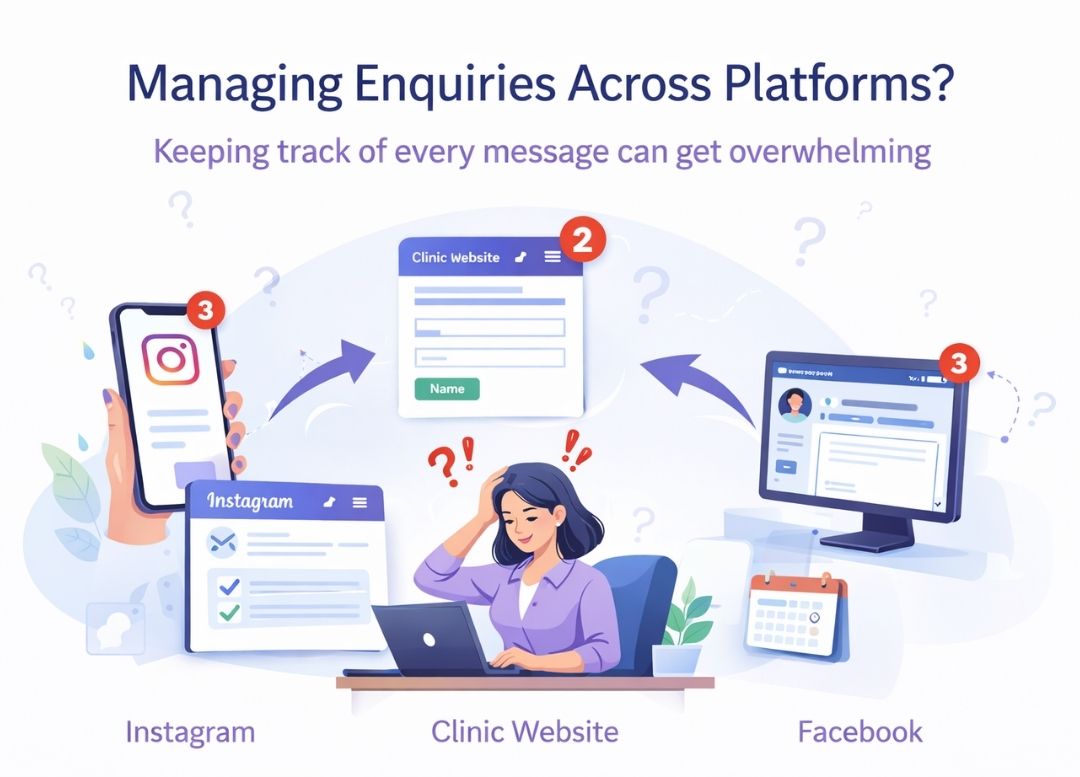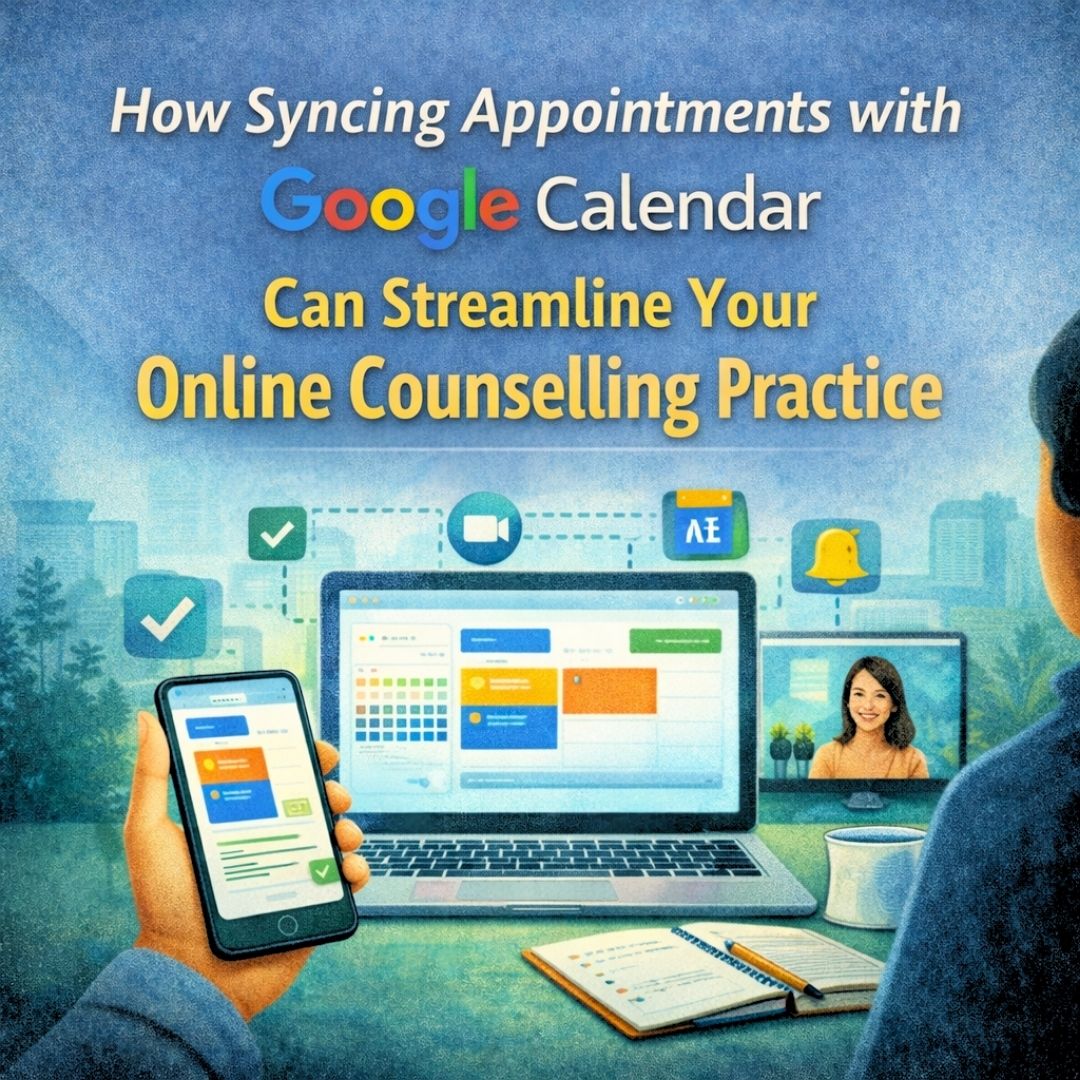How to Start a Private Therapy Practice in India - A Step-by-Step Guide
Looking to build your own therapy practice? This comprehensive guide on how to start a private therapy practice in India covers legal steps, setup, branding, tools, and everything in between.

Introduction
The demand for mental health support in India is steadily rising, yet access to qualified, approachable therapists remains limited. If you’re a trained psychologist or counsellor passionate about making a difference while working independently, starting a private therapy practice in India might be the perfect next step. But where does one begin?
Starting your own practice is rewarding, but also layered with practical, legal, and ethical considerations. From securing the right licenses to setting up your physical or virtual office, branding your services, and ensuring client confidentiality, there’s much to prepare.
This article offers a step-by-step guide tailored for Indian professionals ready to take that leap. Whether you're fresh out of a Master’s program in Clinical Psychology or an experienced therapist considering solo work, this guide simplifies the process.
1. Meet the Educational and Legal Requirements
Before you begin seeing clients privately, you must first ensure that you meet the basic educational and legal standards to practice psychology in India.
a. Educational Qualifications
To become a licensed therapist or clinical psychologist, the minimum educational requirements include:
- M.A./M.Sc. in Psychology or Clinical Psychology (preferably RCI-recognized)
- M.Phil. in Clinical Psychology from an RCI-recognized institute (for clinical practice)
If you want to be recognized as a Clinical Psychologist, you’ll need to register with the Rehabilitation Council of India (RCI), which is mandatory for clinical diagnosis and intervention.
Note: Counselling psychologists, while not mandated to register with RCI, must still hold a relevant Master’s degree and ideally should undergo supervised training.
b. Legal Registration
Once qualified, you need to register your private practice. You can operate as:
- A sole proprietor under your name
- A partnership or LLP if co-founded with another practitioner
- A private limited company (if you plan to scale or hire more professionals)
Register your business under India’s Shops and Establishments Act, get a PAN for your practice, and if applicable, a GST number (mandatory if annual revenue exceeds ₹20 lakhs).
You may also need professional indemnity insurance to protect yourself against legal claims.
2. Set Up Your Therapy Practice: Physical or Online
Once legally established, your next step is setting up the space where you’ll see clients.
a. Choose the Type of Practice
- In-person clinic: Find a quiet, accessible location. Ensure a confidential setting, comfortable seating, and soundproofing.
- Online therapy: Growing post-COVID, this option allows flexibility and cost-efficiency.
Many therapists today opt for hybrid models to widen reach while managing costs.
b. Essential Infrastructure
Here’s a checklist of things psychologists need for private practice:
- A quiet, confidential space or virtual room
- Consent forms and client intake forms
- Practice management software (more below)
- Business bank account
- Basic therapy tools: assessments, notebooks, reference material
- Strong internet connection (for online sessions)
For in-person practices, adhere to basic safety, hygiene, and accessibility standards.
3. Build a Brand and Go Digital
In today’s world, being an excellent therapist isn’t enough. You need people to find you, trust you, and choose you. Branding and marketing your private therapy practice professionally makes a significant difference.
a. Create a Professional Identity
Start with:
- A name for your practice (or use your own)
- A professional logo and color palette
- Business cards and signage
You should also create a NPI-style introduction: a short profile that clearly states your qualifications, therapeutic approach (CBT, REBT, Gestalt, etc.), and the client concerns you specialize in (e.g., anxiety, trauma, couples therapy).
b. Digital Presence
Create a professional website with:
- An “About Me” section
- Services and fees
- Booking calendar (using tools like Calendly or Practice Better)
- Testimonials (once you have clients)
- Blog/articles to establish credibility
Maintain active social media pages - especially Instagram and LinkedIn. This is a space where you can share insights, bust myths, and connect with potential clients authentically.
4. Use the Right Tools to Streamline Your Practice
Whether you’re tech-savvy or not, using the right digital tools can help you save time, ensure compliance, and offer a better experience to your clients.
Here are some of the best online tools for therapists in private practice:
| Purpose | Recommended Tools |
|---|---|
| Video therapy sessions | Zoom, Google Meet, Cliniko |
| Scheduling | LifeHetu, Setmore, or Jane |
| Notes and Documentation | LifeHetu, Theranest, Owl Practice |
| Invoices and Payments | LifeHetu, Instamojo, Zoho Invoice |
| Client Communication | WhatsApp Business, email with encryption |
Always prioritize data security and confidentiality, particularly if storing sensitive client records online. If practicing online, get client consent for digital sessions and document it thoroughly.
5. Financial Planning and Pricing
Many new therapists feel unsure about how much to charge. Pricing your services requires balancing accessibility with sustainability.
a. Research Market Rates
Check what similar therapists in your city or field are charging. Prices typically range between ₹500 to ₹2500 per session, depending on:
- Experience and specialization
- Location and target clientele
- Type of therapy (individual, couples, family)
You may also offer sliding scale pricing or select days with reduced fees to increase accessibility.
b. Track Expenses and File Taxes
Keep a detailed account of:
- Rent and utilities
- Equipment/software
- Marketing expenses
- Professional development (webinars, certifications)
Use this data for annual tax filing under professional income in the ITR form applicable (usually ITR-3). Hiring a CA for the first year can help streamline things.
Conclusion
Knowing how to start a private therapy practice in India is the first step in designing a career filled with purpose, flexibility, and impact. With mental health awareness growing, there’s never been a better time for empathetic, skilled therapists to branch out and make their mark.
Having top-tier practitioners at your practice—especially if you’re setting up as a partnership or LLP—is absolutely crucial. From earning the right qualifications and establishing ethical foundations to branding your services and leveraging the best tools for growth, every step shapes a practice that reflects your unique approach. Take time to plan thoughtfully, secure the necessary licenses, and don’t hesitate to start small—what matters most is starting right.
As you grow, remember that private practice is a long game—built on trust, consistency, and continued learning. Whether you’re figuring out how to start a private practice as a psychologist or expanding your reach online, your journey helps destigmatize mental health in India, one client at a time.
FAQs
- What qualifications do I need to start a private therapy practice in India?
To start a private therapy practice in India, you typically need an M.A./M.Sc. in Psychology or Clinical Psychology. For clinical practice, an M.Phil. in Clinical Psychology from an RCI-recognized institute and registration with the Rehabilitation Council of India (RCI) is mandatory. Counselling psychologists need a relevant Master’s degree and preferably supervised training. - Is RCI registration mandatory for private practice?
RCI registration is mandatory only for Clinical Psychologists who are involved in clinical diagnosis and treatment. Counselling psychologists are not required to register with RCI but should still have the necessary educational qualifications and training. - Do I need to register my therapy practice as a business?
Yes, you should legally register your practice. You can register as a sole proprietor, partnership, LLP, or private limited company. You’ll also need a PAN for your practice and may require GST registration if your revenue exceeds ₹20 lakhs annually. - Should I offer in-person, online, or hybrid therapy sessions?
It depends on your preferences and resources. Many therapists now choose hybrid models, offering both in-person and online sessions to expand reach and manage costs effectively. Online therapy offers flexibility and is especially popular post-COVID. - What tools do I need to run a private therapy practice efficiently?
Key tools include video platforms (Zoom, Google Meet), scheduling software (LifeHetu, Setmore), documentation tools (LifeHetu, Theranest), payment integration (LifeHetu), and secure communication methods like WhatsApp Business and encrypted email. - How much should I charge for therapy sessions in India?
Fees typically range from ₹500 to ₹2500 per session, depending on your experience, specialization, and location. You may also offer sliding scale pricing or discounted sessions to improve accessibility. - Do I need a website and social media presence as a therapist?
Yes. A professional website with an About section, service details, booking calendar, and blog helps build trust. Social media platforms like Instagram and LinkedIn allow you to share insights, connect with potential clients, and increase visibility. - Is professional indemnity insurance necessary?
While not legally mandatory, professional indemnity insurance is highly recommended to protect yourself against potential legal claims or disputes related to your practice. - How do I manage taxes as a private practice therapist in India?
You’ll need to file taxes under 'professional income' using the applicable ITR form (typically ITR-3). Keep records of expenses like rent, marketing, and software. Hiring a Chartered Accountant is advisable for your first year. - What’s the first step to starting my therapy practice?
Start by ensuring you meet the educational and legal requirements, register your practice, and decide on the format (online, offline, or hybrid). Then build a brand identity and create your digital presence to start attracting clients.
Related Reads. Similar Blogs to Check Out.





